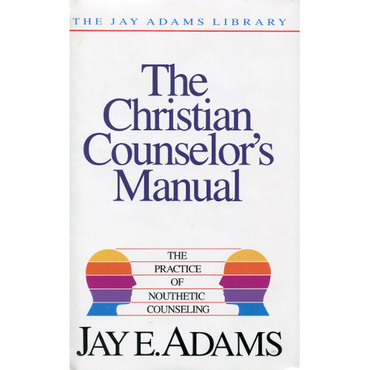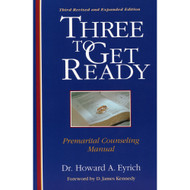Categories
Categories
The Christian Counselor's Manual: The Practice of Nouthetic Counseling
The Christian Counselor's Manual: The Practice of Nouthetic Counseling
Product Description
The Christian Counselor's Manual is a companion and sequel to the author's influential Competent to Counsel. It takes the approach of nouthetic counseling introduced in the earlier volume and applies it to a wide range of issues, topics, and techniques in counseling:
- Who is qualified to be a counselor?
- How can counselees change?
- How does the Holy Spirit work?
- What role does hope play?
- What is the function of language?
- How do we ask the right questions?
- What often lies behind depression?
- How do we deal with anger?
- What is schizophrenia?
These and hundreds more questions are answered in this comprehensive resource for the Christian counselor. A full set of indexes, a detailed table of contents, and a full complement of diagrams and forms make this an outstanding reference book for Christian counselors.
Table of Contents:
Part One: The Persons
I. The Persons Involved in Counseling
II. The Holy Spirit Is the Principal Person
III. The Human Counselor
IV. The Counselee
Part Two: The Presuppositions and Principles
V. Presuppositions and Principles Basic to Counseling
VI. Hope
VII. Prayer: The Base for Christian Counseling
VIII. The Reconciliation/Discipline Dynamic
IX. Reconciliation
X. Presuppositions and Methodology
XI. Technique
Part Three: The Practice and Process
XII. The Language of Counseling
XIII. The Language of Emotion and Action
XIV. Sin Is the Problem
XV. Love in Counseling
XVI. Support, Sympathy, and Empathy
XVII. The Motivation for Change
XVIII. Effecting Biblical Change
XIX. Elements of Dehabituation and Rehabituation
XX. Getting Started
XXI. Goals and Terminal Dates
XXII. The Commitment of the Counselee
XXIII. Is There a Problem?
XXIV. Two basic Approaches
XXV. Ways of Gathering Data
XXVI. Asking Questions
XXVII. Helping Through Homework
XXVIII. An Analysis of Homework
XXIX. Ways of Using Homework
XXX. Gifts That Differ
XXXI. How to Handle Anger
XXXII. Dealing with Envy, Brooding, Fretting, and Self-Pity
XXXIII. Helping Depressed Persons
XXXIV. Helping the ‘Schizophrenic’
XXXV. Resolving Sexual Difficulties
XXXVI. Helping Those Who Fear
XXXVII. Counseling Those Who Fear That They Have Committed the Unpardonable Sin
XXXVIII. Conclusion
About the Author
Jay E. Adams (PhD, University of Missouri) is a former director of advanced studies and professor of practical theology at Westminster Theological Seminary, as well as a retired pastor. He has written over fifty books on pastoral ministry, preaching, counseling, Bible study, and Christian living.
 Loading... Please wait...
Loading... Please wait... 









